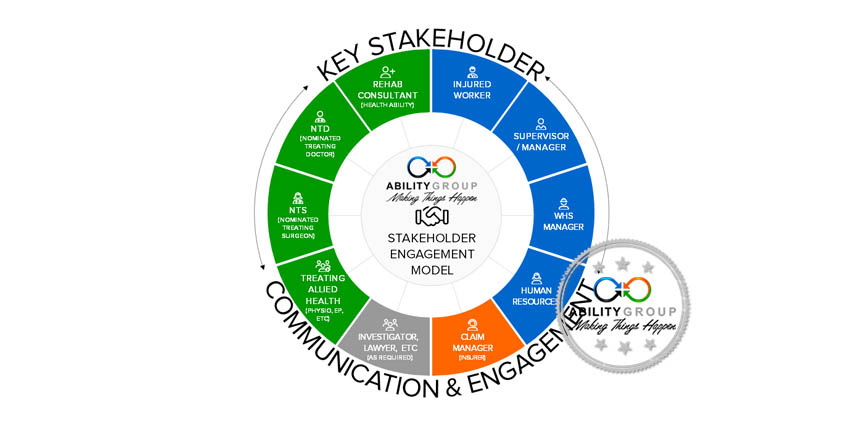Managing stakeholders in a workplace injury claim can be complex, but each plays a vital role in the employee’s return to work.
An Australian workers compensation claim has numerous key stakeholders. Each plays a critical role in supporting the injured worker with their recovery and return to work. The common key stakeholders include:
- Injured Worker: The person who has suffered a work-related injury or illness. They are the primary stakeholder and their health, recovery, and return to work are the main focus of the claim
- The employer is responsible for ensuring a safe workplace, reporting the injury, and often facilitating the worker’s return to work.
- Insurer: The workers compensation insurance company that handles the claim.
- Medical Practitioners: the Nominated Treating Doctor (NTD) or Nominated Treating Specialist (NTS) play a vital role yet rely on other professionals to support the workers recovery and return to work
- Treating Professionals: allied health professionals and providers who assess, treat, and manage the injured worker’s injury/condition/illness and provide “hands-on” support. Treating professionals include; Physiotherapists, Exercise Physiologists (EP), Psychologists, etc.
- Rehabilitation Providers: allied health professionals (Rehabilitation Consultants or Rehab Consultants) working for workplace rehabilitation providers services to help the injured worker recover and return to work. This can include physiotherapists, occupational therapists, and other specialists.
- Workers Compensation Regulatory Authorities: Government bodies that regulate and oversee the workers compensation legislation or schemes in each state and territory. The bodies ensure compliance with laws and regulations and may intervene in disputes. Depending on the nature or severity of the incident/injury, SafeWork Inspectors can be
- Each stakeholder has specific responsibilities and interests. Effective communication and collaboration are essential for successfully managing a workers’ compensation claim, a worker’s recovery from injury/illness/condition and their durable return to work.
Need help?
ABILITY GROUP are specialists in managing key stakeholders and facilitating return to work outcomes. Contact our consultants to get help and allow you to focus on your core responsibilities.

